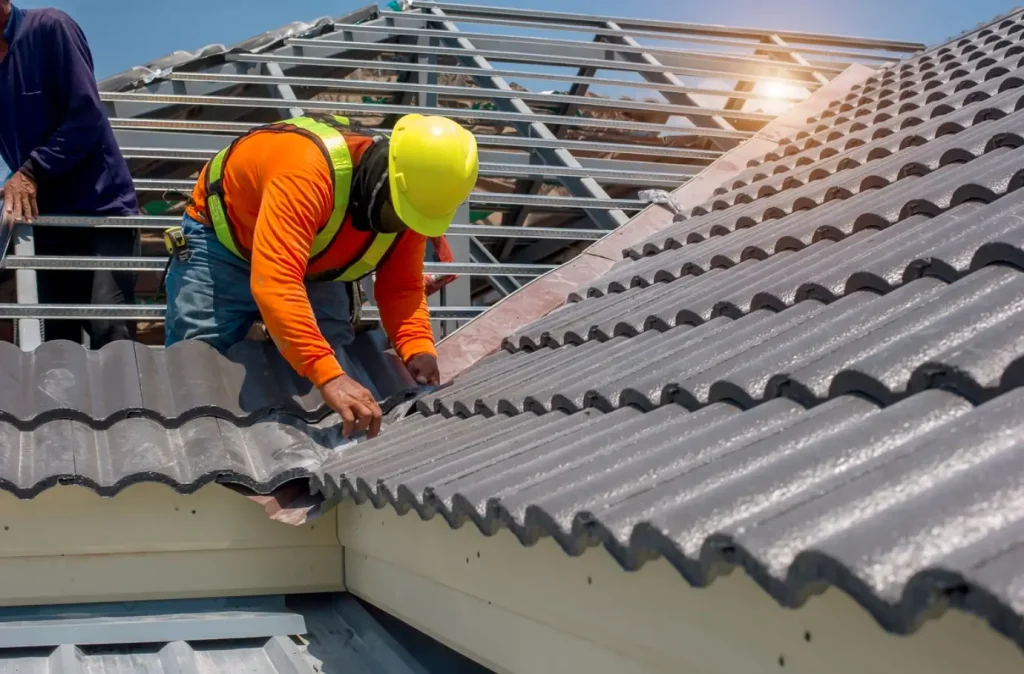Should I Stay Home During Roof Replacement? Pros and Cons
Deciding whether to stay home during a roof replacement can be a bit of a dilemma. On one hand, you want to ensure everything goes smoothly, and on the other, you might dread the noise and disruption.
If you’ve been asking yourself, “Should I stay home during roof replacement?” you’re in the right place.
Whether to stay home during roof replacement depends on your tolerance for noise and disruption. Staying home allows you to monitor the project and communicate with the crew, but it can be noisy and stressful. If the disruption seems overwhelming, consider temporary relocation options for peace of mind.
This article will guide you through the pros and cons of staying home, what to expect, and how to prepare if you choose to stay. By the end, you’ll have a clearer idea of what’s best for you and your family.
What Happens During a Roof Replacement?

A roof replacement is a significant home improvement project that involves several steps.
First, the roofing contractor will perform an initial inspection to assess the roof’s condition and plan the project.
Next, the crew will remove the old roofing materials, exposing the roof deck. This process, known as the tear-off, can be quite noisy and messy. Once the old materials are removed, the crew will inspect the roof deck for any damage that needs repair.
After ensuring the deck is in good condition, they will install an underlayment to protect against moisture.
Following this, the new roofing materials, such as shingles, tiles, or metal panels, are installed. The crew will also add flashing around joints and edges to prevent leaks and ensure proper ventilation.
Finally, the team will clean up the site, removing all debris and conducting a final inspection to ensure everything is in order.
Typically, this entire process for a basic roof replacement usually takes 2 to 5 days, but some bigger or more complex projects may take longer.
Pros of Staying Home During Roof Replacement
- Monitoring Progress: Being home allows you to keep an eye on the work and ensure everything is going according to plan.
- Communication: You can easily communicate with the roofing crew and contractor, addressing any concerns or questions promptly.
- Security: Staying home helps ensure the safety of your belongings and prevents unauthorized access to your property.
- Immediate Problem-Solving: If any issues arise, you can handle them immediately, avoiding delays and potential additional costs.
Cons of Staying Home During Roof Replacement
- Noise: The noise from hammering, tearing off old materials, and installing new ones can be extremely loud and disruptive.
- Safety Concerns: There is a risk of falling debris and navigating around construction zones, which can be hazardous, especially for children and pets.
- Stress and Disruption: The overall stress and inconvenience of living in a construction zone can be overwhelming.
- Dust and Debris: The process can generate a lot of dust and debris, which can affect indoor air quality and cleanliness.
Alternatives to Staying Home
If the idea of staying home during a roof replacement seems too daunting, consider temporary relocation options.
Staying with family or friends, booking a hotel, or even renting a short-term vacation home can provide a respite from the noise and disruption.
This alternative not only offers peace and quiet but also ensures your safety during the project.
Additionally, some homeowners opt for a hybrid approach—staying home during less noisy periods and leaving during the most disruptive times.
This way, you can still monitor the progress and address any issues without enduring the constant commotion.
Preparing Your Home and Family
Securing Valuables
Before the roofing project begins, take steps to protect your valuables. Move delicate or irreplaceable items to a safe location away from the work area. Consider storing them in a different room or even off-site if necessary.
Creating Safe Zones
Establish areas of your home that are off-limits to the roofing crew and safe for your family members. This helps ensure everyone stays clear of the construction zone and minimizes the risk of accidents.
- Designate a Safe Room: Choose a room on the opposite side of the house from the roofing work where family members can retreat to avoid noise and debris.
- Block Off Access: Use barriers or signs to indicate off-limits areas to both workers and family members.
Pet Care
Pets can be particularly sensitive to the noise and disruption of a roof replacement. Here are some tips to keep them safe and comfortable:
- Create a Safe Space: Set up a quiet, comfortable space for your pets away from the work area.
- Consider Boarding: If the noise and activity are too much for your pets, consider boarding them at a kennel or leaving them with a trusted friend or family member.
- Routine and Comfort: Maintain their routine as much as possible and provide comfort items like favorite toys or blankets.
Conclusion
So, should you stay home during roof replacement? The decision ultimately depends on your personal preferences and circumstances. Staying home allows you to monitor progress, communicate directly with the roofing crew, and ensure the security of your property. However, it also comes with significant noise, safety concerns, and potential stress. If the disruption seems too much, consider temporary relocation options to maintain your peace of mind. Whatever you choose, proper preparation and communication with your roofing contractor will help ensure a smooth and successful project. Your comfort and safety should always come first.
FAQs

